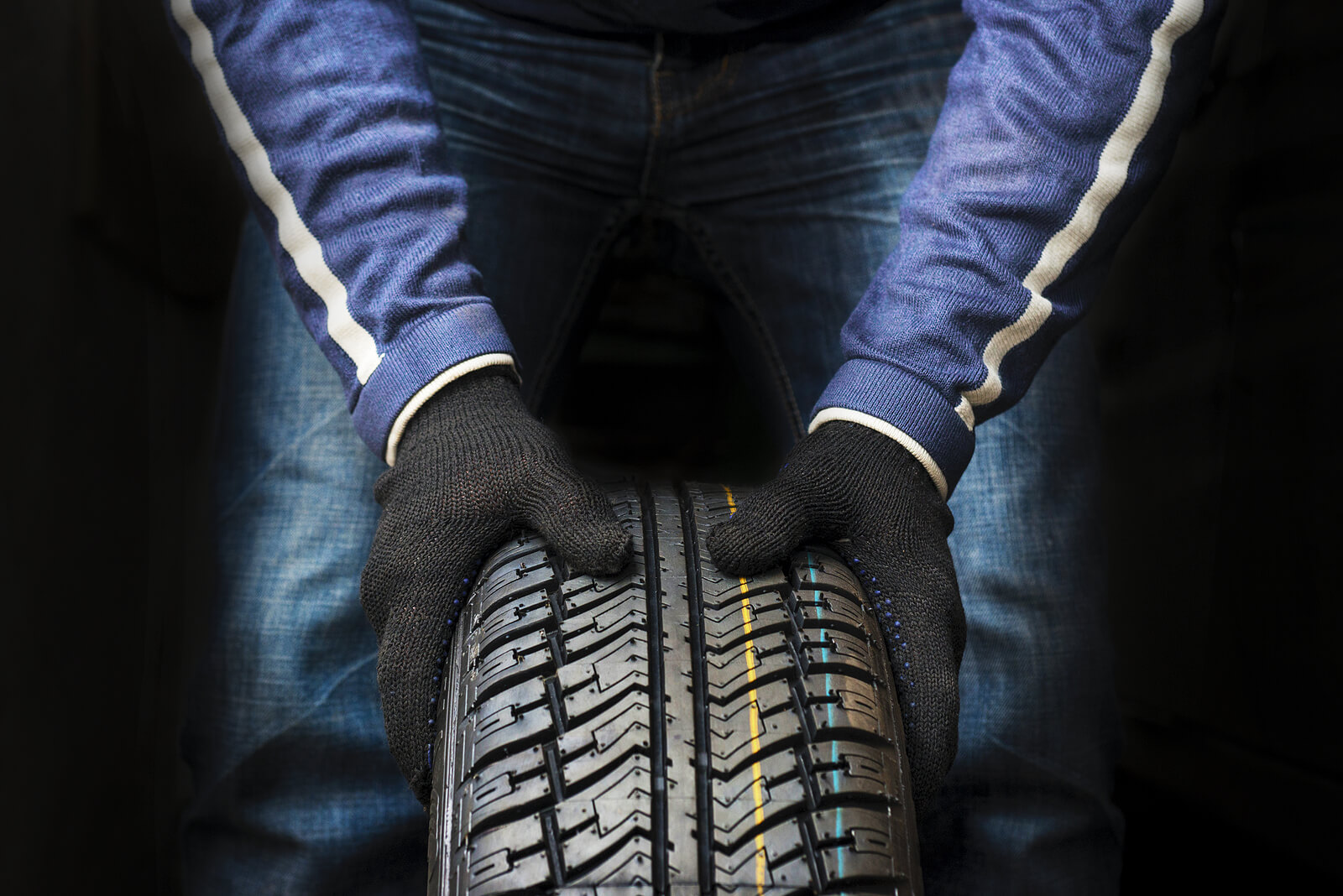
- SALES : (866) 707-7664
- PAYMENTS : (866) 902-7955
- 11646 PRAIRIE AVE, HAWTHORNE, CA 90250
- MON - SAT 8AM - 8PM | SUN 10AM - 6PM
- SALES : (866) 707-7664
- PAYMENTS : (866) 902-7955
- 11646 PRAIRIE AVE, HAWTHORNE, CA 90250
- MON - SAT 8AM - 8PM | SUN 10AM - 6PM
Tire Maintenance: Get the Most Mileage Out of Your Tires

Buying new tires is an investment you want to get the most out of; with proper tire maintenance you can have longer-lasting tires that you can depend on for a smooth, safe ride. Measured in pounds per square inch (PSI), the ideal range varies with each vehicle model and type of tire. You’ll find the correct pressures in the vehicle owner’s manual.
Under inflated tires cause more heat to build up and increase wear. They also make the car work harder, reducing fuel economy. Issues with braking and stopping the vehicle can occur as well, especially in wet or icy conditions. Uneven wear can make the ride less smooth and even put your safety at risk.
But to improve tire life, follow these tire maintenance tips:
Pick the Right Tires for Your Car
Choose high quality tires from a reputable brand. Companies like Bridgestone, Goodyear, and Michelin are known for their superior quality and knowledgeable staff. The right dealer is helpful too, with professional guidance you can be steered in the right direction when it’s time for a new set of tires. A higher-quality product is a start to having a long tire lifespan. Be sure you pick the right size tire for your vehicle as well; trucks, sedans, SUV’s and various vehicles have different sized tires. Using the wrong size can cause serious damage to your vehicle.
Test Your Tire Pressure
Testing tire air pressure monthly is proper tire maintenance. An automotive tire can lose 1 PSI of pressure monthly, while cold winter temperatures can reduce air pressure, leading to sluggish handling, increased stopping distances, and a higher risk of blowouts. One of the leading causes of crashes is underinflated tires, according to the National Highway Traffic Safety Administration. A simple tire gauge can give you an accurate reading, and you can easily refill tires at your local gas station.
Rotate Tires
The front tires wear faster on a front-wheel drive vehicle, while the back tires of a rear-wheel drive vehicle wear out sooner. But uneven wear occurs on all-wheel drive cars too. Rotating the tires around helps even out the wear; having this done by a professional every 5,000 miles can enable your tires to last longer. The exact interval depends on the vehicle (some cars may need tire rotations every 6,000 to 8,000 miles).
Check Alignment
Wheel alignment issues can cause your car to pull or drift to one side or another. The steering wheel might vibrate or shake too. Alignment can shift when you hit a pothole or curb. A slight misalignment may be barely noticeable, but it can increase tread wear and reduce gas mileage. Checking your alignment every six months can lead to longer lasting tires and saved money.
Balance the Wheels
No tire or wheel has a perfectly distributed weight. Differences of a fraction of an ounce in different spots can cause vibration and uneven wear. A mechanic can use a specialized machine and small weights that can be inserted into the wheel to provide balance. It’s usually a fast, inexpensive process to reduce tire wear and tear.
Avoid Mismatching Tires
It may be tempting to replace a single tire with the most accessible brand. But mismatching tires can affect handling and cause your other tires to wear out faster. It can strain other parts of your car as well. At least two tires should be replaced at a time, or better yet, replace all when it’s time to buy new tires.
Keep Your Tires Clean
Dirt and debris can damage the tire and even increase the risk of damage to your car’s metal finish. By cleaning car tires, you can improve traction and braking effectiveness. There are sprays, creams, and polishes that can be used. After applying, scrub the tire with a bristled brush or sponge, and dry it with a towel or microfiber cloth. Waxing and buffing provide additional protection.
Avoid Difficult Terrain
Rocky terrain can put a dent on car tire life. The accelerated wear undermines your tires ability to support the car’s weight, and risks sharp rocks puncturing the tire surface. While smooth roads can extend tire life, you should treat your car with care when handling corners and avoiding the edges of curbs.
Get Your Tires Inspected Regularly
Look for objects puncturing the tire, cracks, bulges, or other irregularities. Screws, nails, stones, glass, and other items can puncture the sidewall; if so, change tires immediately. Inspect tire integrity and pressure in your garage, rather than on a freeway after tire failure, or contact a tire professional in your area before going on a road trip.
Buying a Used Car? Contact Hawthorne Auto Square
We sell hundreds of high-quality, pre-owned vehicles in the Los Angeles area. Our team can get you approved for our in-house financing programs and has sedans, SUVs, minivans, and trucks from leading brands. To learn more about our buy here, pay here dealership and find the vehicle you want and need, contact us at 866-707-7664 today.
Latest News


Why Should I Buy a Used Toyota Camry?

Bankruptcy and Car Ownership: How BHPH Can Help


Used Car Price Trends for 2025: What Buyers & Sellers Need To Know
Get approved
It only takes a few minutes and won’t affect your credit.
- Pre-Inspected Cars
- Clean Title
- Under Warranty
Latest Videos
What Do I Need To Buy A Car - Hawthorne Auto Square
Second Chance for a New Car - Hawthorne Auto Square
Pre Approved Auto Lone – Hawthorne Auto Square
- SALES : (866) 707-7664
- PAYMENTS : (866) 902-7955
- 11646 PRAIRIE AVE, HAWTHORNE, CA 90250
- MON - SAT 8AM - 8PM | SUN 10AM - 6PM
© 2025 Hawthorne Auto Square. All Rights Reserved. Website Designed by: Ad Leverage | Privacy Policy | Terms of Service | Manage Cookies | DSAR |License #91864
© 2025 Hawthorne Auto Square. All Rights Reserved. Website Designed by:
Ad Leverage | Privacy Policy | Terms of Service
License #91864

